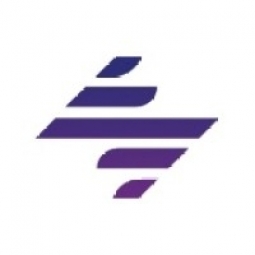公司规模
Mid-size Company
地区
- America
国家
- United States
产品
- Spireon FleetLocate
实施规模
- Enterprise-wide Deployment
影响指标
- Cost Savings
- Productivity Improvements
技术
- 功能应用 - 车队管理系统 (FMS)
适用行业
- 运输
适用功能
- 物流运输
用例
- 车队管理
- 资产健康管理 (AHM)
关于客户
Sharp Transportation Inc. is a medium-sized enterprise operating in the transportation services industry. The company has a substantial fleet of trailers and assets that it uses to provide transportation services. Managing this fleet and ensuring its efficient use is a critical aspect of the company's operations. The company also needs to comply with various regulatory requirements, including the Food Safety Modernization Act, which adds another layer of complexity to its operations.
挑战
Sharp Transportation Inc. was facing challenges in managing their trailer fleet. They were struggling with knowing where their trailers and assets were at all times and how they were being used. This was causing inefficiencies in their operations and was also impacting their ability to comply with the Food Safety Modernization Act. The company needed a solution that could help them better manage their trailer fleet, improve detention billing, reduce wasted driver time, and ease compliance with regulatory requirements.
解决方案
Sharp Transportation Inc. selected Spireon's FleetLocate solution to address their challenges. FleetLocate is a fleet management system that provides real-time tracking of trailers and assets, helping companies like Sharp Transportation Inc. know where their assets are at all times and how they are being used. The system also offers features for improving detention billing and reducing wasted driver time. Additionally, FleetLocate's trailer health monitoring feature helped Sharp Transportation Inc. reduce the number of fleet maintenance-related CSA violations by 25-50%. The company also used FleetLocate to locate a misplaced or lost trailer.
运营影响
数量效益

Case Study missing?
Start adding your own!
Register with your work email and create a new case study profile for your business.
相关案例.

Case Study
Airport SCADA Systems Improve Service Levels
Modern airports are one of the busiest environments on Earth and rely on process automation equipment to ensure service operators achieve their KPIs. Increasingly airport SCADA systems are being used to control all aspects of the operation and associated facilities. This is because unplanned system downtime can cost dearly, both in terms of reduced revenues and the associated loss of customer satisfaction due to inevitable travel inconvenience and disruption.

Case Study
IoT-based Fleet Intelligence Innovation
Speed to market is precious for DRVR, a rapidly growing start-up company. With a business model dependent on reliable mobile data, managers were spending their lives trying to negotiate data roaming deals with mobile network operators in different countries. And, even then, service quality was a constant concern.

Case Study
Digitize Railway with Deutsche Bahn
To reduce maintenance costs and delay-causing failures for Deutsche Bahn. They need manual measurements by a position measurement system based on custom-made MEMS sensor clusters, which allow autonomous and continuous monitoring with wireless data transmission and long battery. They were looking for data pre-processing solution in the sensor and machine learning algorithms in the cloud so as to detect critical wear.

Case Study
Cold Chain Transportation and Refrigerated Fleet Management System
1) Create a digital connected transportation solution to retrofit cold chain trailers with real-time tracking and controls. 2) Prevent multi-million dollar losses due to theft or spoilage. 3) Deliver a digital chain-of-custody solution for door to door load monitoring and security. 4) Provide a trusted multi-fleet solution in a single application with granular data and access controls.

Case Study
Vehicle Fleet Analytics
Organizations frequently implement a maintenance strategy for their fleets of vehicles using a combination of time and usage based maintenance schedules. While effective as a whole, time and usage based schedules do not take into account driving patterns, environmental factors, and sensors currently deployed within the vehicle measuring crank voltage, ignition voltage, and acceleration, all of which have a significant influence on the overall health of the vehicle.In a typical fleet, a large percentage of road calls are related to electrical failure, with battery failure being a common cause. Battery failures result in unmet service agreement levels and costly re-adjustment of scheduled to provide replacement vehicles. To reduce the impact of unplanned maintenance, the transportation logistics company was interested in a trial of C3 Vehicle Fleet Analytics.

Case Study
3M Gains Real-Time Insight with Cloud Solution
The company has a long track record of innovative technology solutions. For example, 3M helps its customers optimize parking operations by automating fee collection and other processes. To improve support for this rapidly expanding segment, 3M needed to automate its own data collection and reporting. The company had recently purchased the assets of parking, tolling, and automatic license plate reader businesses, and required better insight into these acquisitions. Chad Reed, Global Business Manager for 3M Parking Systems, says, “With thousands of installations across the world, we couldn’t keep track of our software and hardware deployments, which made it difficult to understand our market penetration.” 3M wanted a tracking application that sales staff could use to get real-time information about the type and location of 3M products in parking lots and garages. So that it could be used on-site with potential customers, the solution would have to provide access to data anytime, anywhere, and from an array of mobile devices. Jason Fox, Mobile Application Architect at 3M, upped the ante by volunteering to deliver the new app in one weekend. For Fox and his team, these requirements meant turning to the cloud instead of an on-premises datacenter. “My first thought was to go directly to the cloud because we needed to provide access not only to our salespeople, but to resellers who didn’t have access to our internal network,” says Fox. “The cloud just seemed like a logical choice.”







